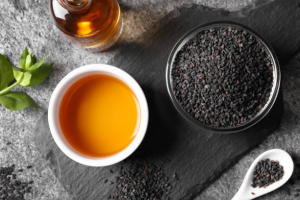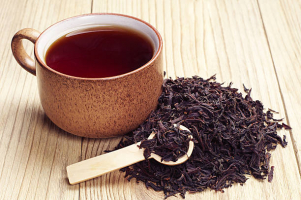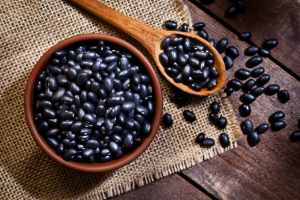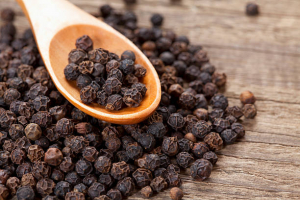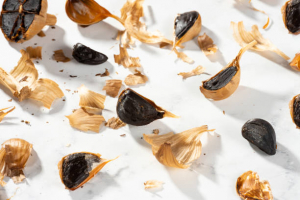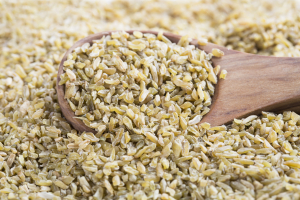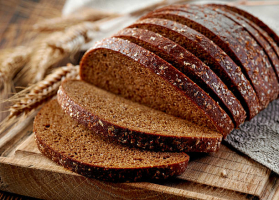Top 5 Health Benefits of Black-Eyed Peas (Cowpeas)
Cowpea, also known as black-eyed pea, is an oval bean with a black eye that is grown all over the world as a common legume. Cowpeas come in a variety of ... read more...species, including red, black, brown, creamy white, and others. They are often light in color. Although its savory flavor and taste are well-known in Indian cuisine, it is also filled with a variety of health benefits. Cowpeas are a significant ingredient in Southern cuisine because of their robust flavor and taste. Here are the best health benefits of cowpeas.
-
Black-eyed peas are incredibly nutrient-dense, packing plenty of fiber and protein into each serving. They’re also a good source of several important micronutrients, including folate, copper, thiamine, and iron. One cup (170 grams) of cooked black-eyed peas contains the following nutrients:
- Calories: 194
- Protein: 13 grams
- Fat: 0.9 grams
- Carbs: 35 grams
- Fiber: 11 grams
- Folate: 88% of the DV
- Copper: 50% of the DV
- Thiamine: 28% of the DV
- Iron: 23% of the DV
- Phosphorus: 21% of the DV
- Magnesium: 21% of the DV
- Zinc: 20% of the DV
- Potassium: 10% of the DV
- Vitamin B6: 10% of the DV
- Selenium: 8% of the DV
- Riboflavin: 7% of the DV
In addition to the nutrients listed above, black-eyed peas are high in polyphenols, which are compounds that act as antioxidants in the body to prevent cell damage and protect against disease.
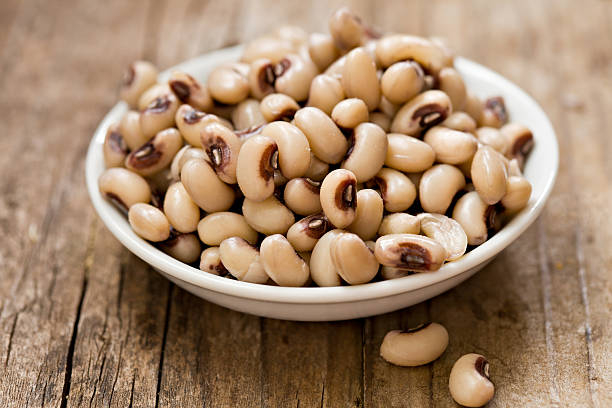
Pack with nutrients 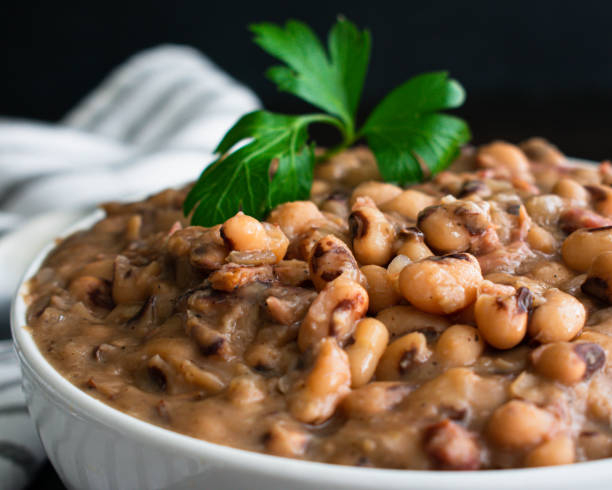
Pack with nutrients -
Including black-eyed peas in your diet is an excellent strategy to accelerate weight reduction because of their high protein and soluble fiber levels. Ghrelin, a hormone that increases sensations of hunger, has been proven to be decreased by protein in particular. Soluble fiber, on the other hand, is a type of fiber that takes on a gel-like consistency and passes slowly through your digestive system to help you feel full between meals.
One research of 1,475 adults found that regular bean eaters had a 23 percent reduced risk of abdominal fat accumulation and a 22 percent lower risk of obesity than non-consumers. Pulses, such as black-eyed peas, may be an effective weight-loss method and may help lower body fat percentage, according to another study of 21 research.
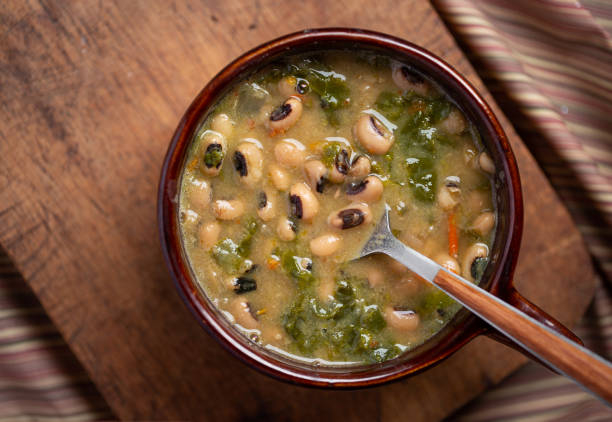
Support weight loss 
Support weight loss -
Soluble fiber, a crucial mineral for digestive health, is found in abundance in black-eyed peas. In fact, research suggests that increasing your consumption of soluble fiber can aid people who are constipated by encouraging regularity and improving stool frequency. According to an additional study, fiber may aid in the prevention of digestive diseases such as acid reflux, hemorrhoids, and stomach ulcers.
Black-eyed peas and other plants include soluble fiber, which can function as a prebiotic by encouraging the development of the good bacteria in your gut and promoting a balanced microbiome. These advantageous bacteria have been demonstrated to lower inflammation, improve immunological response, and lower cholesterol levels in addition to supporting digestive health.
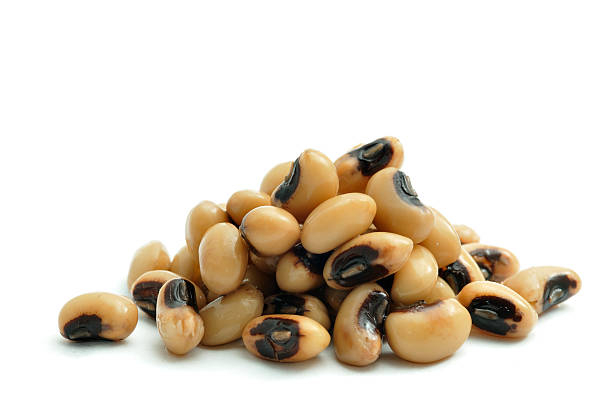
Promote digestive health 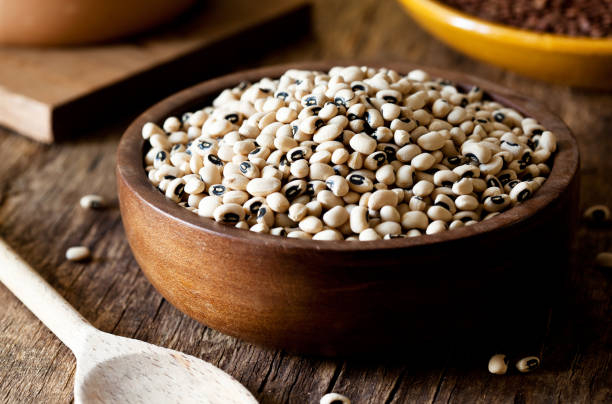
Promote digestive health -
Black-eyed peas may help lower various risk factors for heart disease, so including them in a balanced diet is a great approach to maintaining a strong and healthy heart. Regular consumption of beans was associated with reduced levels of total and LDL (bad) cholesterol, both of which can contribute to heart disease, in one evaluation of 10 trials.
A low-calorie diet supplemented with 1 cup of beans per day for 6 weeks, as opposed to a control group, significantly lowered waist circumference, triglyceride levels, and blood pressure in 42 women, according to another research. Consuming legumes frequently has also been linked to lowered inflammation-related biomarkers, which may also help lessen your risk of heart disease.
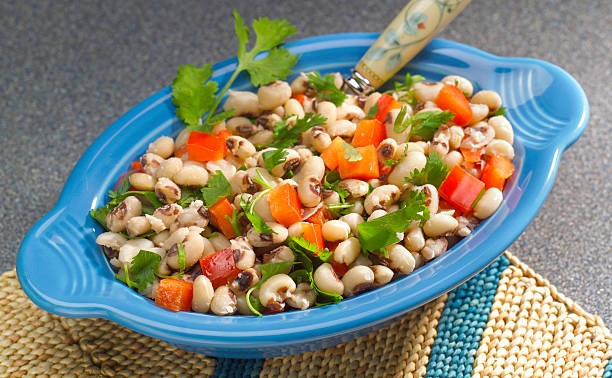
Enhance heart health 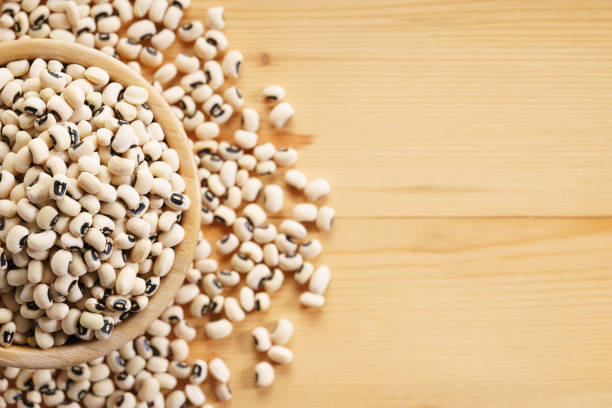
Enhance heart health -
For men, a half-cup portion of black-eyed peas provides 40% of the daily required intake while for women, 52%. The cell structures that provide the energy for your body are shielded by the antioxidant manganese. Black-eyed peas' protein contributes to an increase in energy levels.
A serving of black-eyed peas that is half a cup contains 13% of the daily recommended amount of vitamin A. By defending your corneas, assisting your body in producing eye lubricant, and supporting retina function, vitamin A enhances the health of your eyes. Black-eyed peas include soluble fiber, which slows digestion and lowers the danger of blood sugar rises while assisting the body in controlling blood sugar levels. Due to their decreased risk, black-eyed peas are a good diabetic meal option. Black-eyed peas, which are essential for bone strength, provide 8% of the daily recommended intake of calcium in a serving of half a cup.

Improve eye health and physical health 
Improve eye health and physical health







